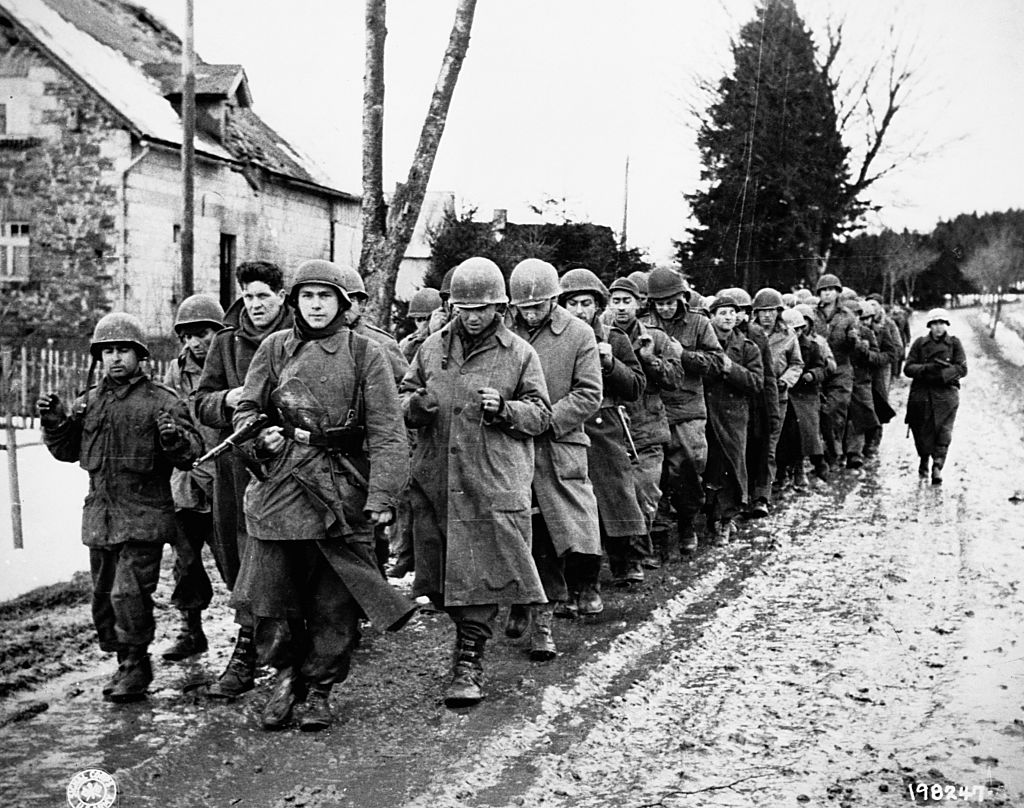
Who we value and honor says much about our nation and culture. One of our country's finest, yet one who still remains in obscurity, was born on August 20 over a century ago. Roderick Edmonds, a twenty-four-year-old non-commissioned officer from Tennessee, is one of just five Americans recognized by the Yad Vashem Holocaust memorial in Israel for his heroics in saving some 200 lives during World War II. Yet he has not been recognized by our own country or by the US Army and he is still virtually unknown. A bipartisan effort to award him the Congressional Gold Medal failed to garner enough votes last year, but legislation has again been introduced into both the House and Senate. It is time we honor a man who is among the greatest of the Greatest Generation and who can serve as an object lesson, in a time of rising bigotry, of the great American traditions of tolerance and selfless bravery.
Master Sergeant Roddie Edmonds was a Methodist high school graduate from South Knoxville, Tennessee who enlisted at age 21. At the end of 1944, he was in Europe as part of the 106th Infantry Division, the “Golden Lions,” sent to reinforce the offensive against the Siegfried Line. Six days after he arrived, the Battle of the Bulge began. On December 19, surrounded and outgunned, his commanding officer surrendered and Edmonds became one among the 20,000 Americans captured.
Edmonds and the others were marched fifty kilometers in the freezing cold to the Gerolstein railway station, several dying along the way. They were sealed in boxcars, seventy men in each without food or water, forced to eat snow, and transported to the Stalag IX-B prison camp at Bad Orb.
There the Nazis separated the Jewish American soldiers and put them into segregated barracks where lice crawled on the mattresses and they were given starvation rations. Some 350 were eventually sent east to the Berga forced labor camp, where a number perished.
After a month at Bad Orb, the Germans divided the American POWs into groups and sent the 1,292 non-commissioned officers to the Stalag IX-A camp at Ziegenhain. Edmonds was the highest-ranking among the cohort which joined British, French, and Russian prisoners at the camp.
Soon after arrival, the Germans announced over the loudspeaker that all Jewish prisoners were to report the following morning on pain of being shot. That evening, Edmonds gave the order that instead all American soldiers would appear together in military formation. The 200 Jews among them would not be separated or identified.
When he saw all the Americans standing in front of the barracks, Edmonds in front in command, the German commander Major Siegmann was enraged. He rushed over and shouted in English, “These men cannot all be Jews!”
“We are all Jews here,” Edmonds told him.
Infuriated, Seigmann drew his Luger and pressed it to Edmonds’ forehead. “You will order all Jews to step forward, or I will shoot you right now,” several witnesses recalled him screaming.
Edmonds calmly told him that the Geneva Convention required a soldier only to give his name, rank and serial number, not his religion. “If you shoot me,” he said, “you will have to shoot all of us, because we all know who you are, and when the war is over you will be tried as a war criminal.”
Aware that the war was in endgame with Allied troops approaching and that Edmonds was right, Seigmann turned red, dropped his pistol and stormed off to his office. The Americans returned to their barracks, the two hundred Jews still safely among them.
As for Edmonds and his men, on March 30, the second day of Passover, the Jewish holiday of liberation, the American Army arrived. Edmonds had taken the brave decision to refuse Nazi orders to evacuate his men with the other prisoners until the Germans finally left them behind in frustration just before the camp was freed. Edmonds had spent 100 days in captivity and returned home. He then fought again in the Korean War before becoming a salesman of mobile homes and cable television in Tennessee. He died in 1985 never telling anyone, even his family, what had happened in the Stelag.
His son years later discovered the story while helping his daughter with a school project. In 2015, Edmonds was honored by Yad Vashem as a Righteous Among the Nations, only the fifth American to be so named and the only one for protecting American Jews. He was praised at the ceremony by President Barack Obama for actions “above and beyond the call of duty,” although he has been denied the Medal of Honor by the Army because it claims that his actions were not undertaken in combat, a strange position given an enemy officer literally pointed a gun at Edmonds’ head. Both Congress, through its proposed legislation, and the Army should at long last honor a man who is among the best our nation has produced.
Edmonds was a truly extraordinary leader and a moral exemplar, “a man,” one of the Jewish POWs recalled, “of great courage.” His beautiful actions that cold January day in 1945 should be remembered forever. As another of the Jews he rescued, Sonny Fox, later the host of a well-known children’s show, reflected, “That such people can exist gives you hope for humanity.” It is time for him to be recognized as an American hero.
More Must-Reads From TIME
- The 100 Most Influential People of 2024
- How Far Trump Would Go
- Scenes From Pro-Palestinian Encampments Across U.S. Universities
- Saving Seconds Is Better Than Hours
- Why Your Breakfast Should Start with a Vegetable
- 6 Compliments That Land Every Time
- Welcome to the Golden Age of Ryan Gosling
- Want Weekly Recs on What to Watch, Read, and More? Sign Up for Worth Your Time
Contact us at letters@time.com